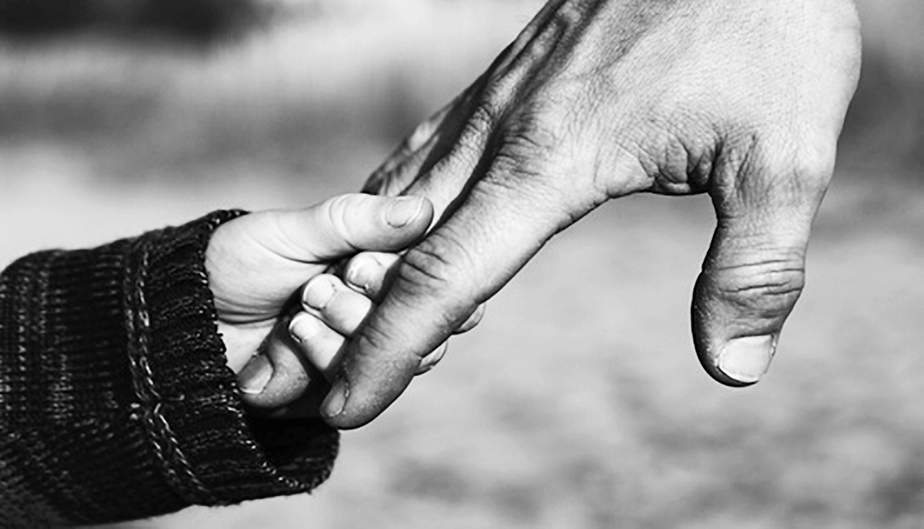
I remember reading two poems for my English Literature paper in my high school years; “Do Not Go Gentle Into That Good Night” by Dylan Thomas and “Breaking Out” by Marge Piercy. Both the poems have different poetic overtones, however, one shared theme is that of ‘father’.
“Do Not Go Gentle Into That Good Night” remains, indeed, Thomas’ best known and most beloved poem, suggestively written for his dying father.
Thomas urges him:
“And you, my father, there on the sad height,
Curse, bless, me now with your fierce tears, I pray.
Do not go gentle into that good night.
Rage, rage against the dying of the light.”
However, the true greatness of the poem does not just lie in its fame; it lies in the powerful emotions that are the fabricating threads of the masterpiece. Thomas uses the poem to address his dying father, lamenting his father’s loss of strength and health, and encouraging him to cling to life till ‘the light dies’.
“Breaking Out” is a poem that deals with the family life of a young girl living in mid-20th century America. A longing for escaping the abusive parents, especially the father, hovers over the entire text of the poem.
Piercy writes:
“A mangle stood there, for ironing
What I never thought needed it:
Sheets, towels, my father’s underwear.”
The poem talks about oppression and liberation: the oppression depicted in the images of domesticity. She compares her mother to Sisyphus and the endless household chores to his rock. Piercy ends the poem on a rebellious note:
“I would not be Sisyphus.”
One thing that demands attention is the subject treatment by Thomas and Piercy. Thomas’ heart rending lamentation of his father being on the ‘sad height’ contrasts with Piercy’s recall of her father wielding the stick on her ‘far longer and harder’.
A recent lecture I attended brought forth the term ‘rebellious daughter’, talking in context to Kamla Das. Upon further research, I noticed a pattern being set: most of the poems which carried a rebellious and questioning attitude, both personally and in general, against ‘the master of the family’ were written by women. Most of the men who wrote about or for their fathers made a fonder recall.
Kamla Das, an Indian English poet as well as a leading Malayalam author, is called a ‘rebellious daughter’ and is often compared to Sylvia Plath and Anne Saxton. She strongly felt that she was deprived of paternal love. In her poem ‘Next to Indira Gandhi’ she questions her father:
“I ask you without fear
Did you want me
Did you ever want a daughter?”
Sylvia Plath’s ‘Daddy’ is called a ‘metaphorical murder of her father’. She writes:
“Daddy, daddy, you bastard. I’m through.”
Anne Saxton once said, “It doesn’t matter who my father was, it matters who I remember he was.” In her poem ‘All my Pretty Ones’, Saxton writes about her father:
“Whether you are pretty or not, I outlive you,
Bend down my strange face to yours and forgive you.”
A contemporary poet like Natasha Trethwey says in context to her father’s elegy that what was being eulogised was not her father’s life but a kind of loss and estrangement between a father and a daughter.
On the other hand, poems centering around fathers, composed by male poets, look up to them as pillars of support, revere them and honour their labour.
Robert Haydon says in ‘Those Winter Sundays’ :
“Sundays too my father got up early
and put his clothes on in the blueblack cold,
then with cracked hands that ached
from labor in the weekday weather made
banked fires blaze. No one ever thanked him.”
William Jay Smith recalls his father’s memory fondly in ‘American Primitive’ :
“Look at him there in his stove pipe hat,
His high-top shoes, and his handsome collar;
Only my Daddy could look like that,
And I love my Daddy like he loves his dollar.”
Dilip Chitre, in his poem ‘Father Returning Home’ creates a moving picture of a father who has become a figure of pathos and is alienated from his children:
“His eyes dimmed by age
fade homeward through the humid monsoon night.”
Why does this set as a pattern? Why does the notion of a ‘rebellious son’ does not appear more frequently in English poetry?
Perhaps patriarchy could be an answer to this. For the daughters, father is to be feared; this fear leaves very little room for love, making him an almost absent, mythical man. This is different for sons, they could be ‘buddies’, they could go together fishing and hunting; sons could disclose their love interests to their fathers. The father, yet formidable, was not an absent figure for sons.
This relationship difference is clearly seen in the articulation of male and female emotions about their fathers through their poetry.
This article has been re-published with the permission of Newslaundry. Read the original article on www.newslaundry.com
The likely Rs 1,000 crore sale of the Tehri Garhwal House, former royal residence on…
On the principle of 'Sarvajan Hitaya, Sarvajan Sukhaya' -- Welfare for all, Happiness for all…
With hundreds reported missing in Delhi this year, this guide explains how families can use…
The case came to light after a 35-year-old woman from Panipat alleged that she had…
During the investigation, CCTV footage helped identify the suspects, according to Delhi Police
The launch took place during the inauguration of the Delhi Police Exhibition Hall at Connaught…